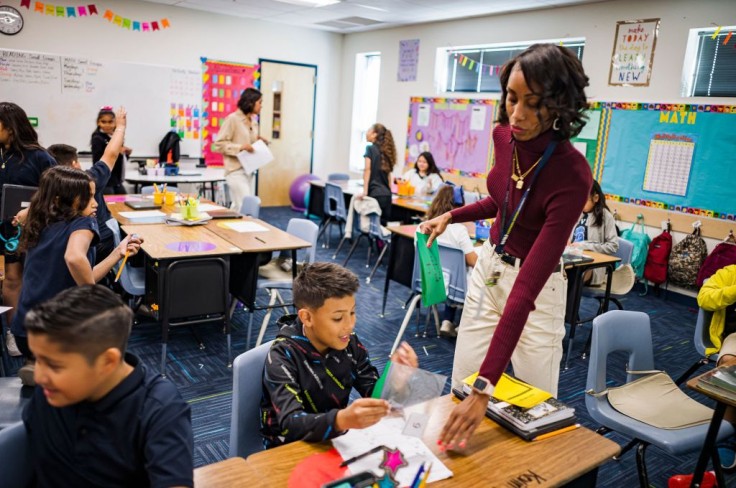
Students in elementary and middle school are still not making up for the learning loss in math and reading at the height of the COVID-19 pandemic.
A new study by the Center for Education Policy Research at Harvard University and The Educational Opportunity Project at Stanford University reveals that there is a persistent struggle among students to reclaim learning losses in the aftermath of pandemic-induced disruptions.
Despite significant efforts to mitigate learning setbacks, academic challenges continue to persist, a looming threat to the federal aid that has been a critical lifeline for K-12 schools during these tumultuous times.
Learning Loss Under the COVID-19 Pandemic
Navigating the landscape of post-pandemic education, students have made noteworthy strides in recovering from the unprecedented learning losses incurred during the COVID-19 pandemic.
The collaborative report, published recently, underscores that between spring 2022 and spring 2023, students have managed to recover about one-third of the original loss in math and one-quarter in reading.
However, these historic gains, while significant, are revealed to be concealing a more complex narrative.
Digging deeper into the state-level data in the realm of mathematics, the report reveals that only students in Alabama have successfully returned to pre-pandemic achievement levels-a commendable feat reflecting the levels seen in 2019.
Conversely, the situation is less optimistic in 17 states where students lag one-third behind 2019 levels in math.
A parallel scenario unfolds in reading achievement, with students in three states-Illinois, Louisiana, and Mississippi-restoring 2019 levels, while 14 states grapple with a more than one-third grade-level lag.
Furthermore, as students grapple with the ongoing academic challenges, an additional layer of concern looms, the imminent risk of federal aid expiration.
K-12 schools, having received a substantial $190 billion in federal aid during the pandemic, now face the dilemma of utilizing the remaining $51 billion effectively before September.
The clock is ticking, and the report highlights the urgency for states and districts to channel these funds towards addressing learning disparities and facilitating a comprehensive academic recovery.
Read Also: Arby's Foundation's $1 Million Donation Erases Student Lunch Debts for 7,000+ Georgia Students
Call for Immediate Action: Bridging the Learning Gaps
The report serves as a clarion call for immediate and targeted interventions to counteract the persistent learning challenges.
It advocates for proactive measures such as schools promptly informing parents if their child falls below grade level in math or reading, enabling timely enrollment in summer learning programs.
Furthermore, the report underscores the need for an extensive expansion of summer learning initiatives in 2024, acting as a crucial bridge to academic recovery.
In the pursuit of closing the widening achievement gaps, the researchers recommend districts to proactively contract high-quality tutoring and after-school programs before September, utilizing the remaining federal aid.
The report emphasizes the necessity of continued focus on both math and reading recovery, asserting that at least another year of recovery in math and two more in reading are imperative for students to reach pre-pandemic achievement levels.
As the nation grapples with the intricate aftermath of the COVID-19 pandemic on education, this report unfolds as a poignant narrative of both progress and persisting challenges.
The fate of federal aid now hangs in the balance, underscoring the critical need for immediate and sustained efforts to ensure that students can effectively reclaim lost ground and bridge the learning gaps exacerbated by the unprecedented disruptions wrought by the pandemic.